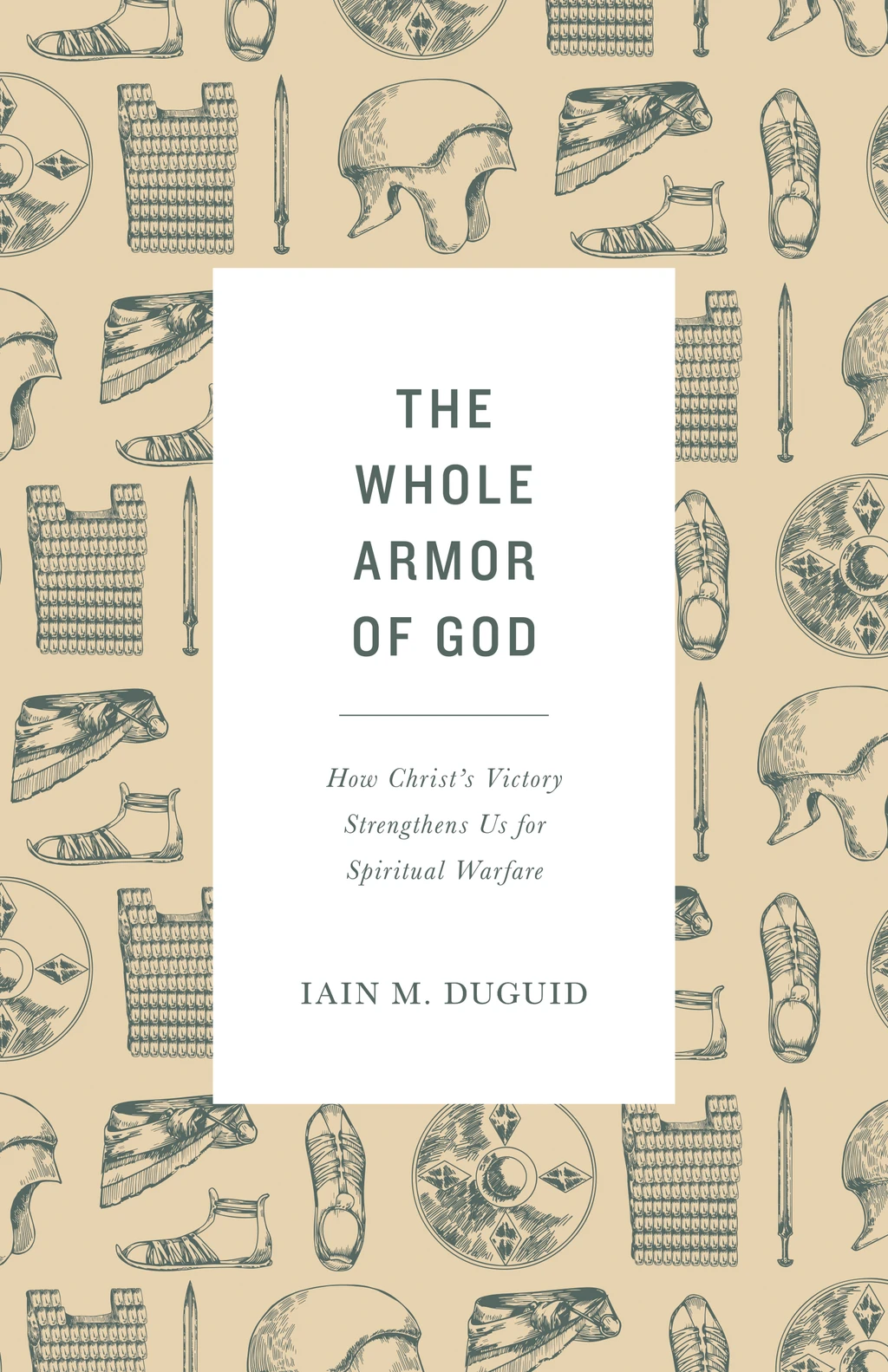
Iain M. Duguid
Reviewed by: Douglas A. Felch
The Whole Armor of God: How Christs Victory Strengthens Us for Spiritual Warfare, by Iain M. Duguid. Crossway, 2019. Paperback, 128 pages, $10.29 (Amazon). Reviewed by OP minister Douglas A. Felch.
While a student at Wheaton College, in an essay for Dr. Arthur Holmes, I made reference to “the whole armor of God” from Ephesians 6:11. A typo altered the phrase to “the whole amour of God.” Dr. Holmes circled the error with delight and penned a memorable annotation: “Ah, sweet amour! But love is not enough!”
This testimony is true and is confirmed in Iain Duguids treatment of Ephesians 6:10–18. Up front, Duguid challenges us that we are engaged in a cosmic battle for which we must be properly equipped. As Paul reminds us, our battle is not with flesh and blood, but against supernatural principalities, powers, and the rulers of darkness and wickedness. God prepares us, not only with the same mighty power by which he raised Jesus from the dead (1:19–20), but also with armor appropriate to enable us to stand despite our own weakness and fear.
Duguid promotes two essential points often absent in sermons or Bible studies on this topic. First, the armor of Ephesians 6 is actually Gods armor. We do not simply receive it from him. It is armor that he himself has worn as he defeated his enemies and redeemed his people. Duguid carefully supports this with numerous references from the Old Testament, but especially the book of Isaiah.
Second, he instructs us that Jesus wore this same armor as he accomplished our salvation. All the pieces point to Jesus. We wear the armor of God worn by Christ because Jesus wore it first. This enables us to be strong in the Lord and the strength of his might.
In successive chapters, Duguid unpacks the significance of the various components of the divine armor. Here are three short summaries of what you will find there.
The “Breastplate of Righteousness” (Isaiah 59:11) points to Jesuss work of redemption in which our sins were placed upon the Suffering Servant and his positive righteousness was imputed to us. Satan can challenge our feeble attempts at obedience, but is unable to penetrate the breastplate of righteousness.
The “Helmet of Salvation” is rooted in the description of the Divine Warrior of Isaiah 59:17. In 1 Thessalonians 5:8, Paul describes it more fully as “the hope of salvation.” It provides the settled conviction and confident assurance that what God has begun in us he will complete in the day of Jesus Christ.
The “Sword of the Spirit” emphasizes the necessity of skillfully handling Gods Word especially in the day of temptation. We tend to feebly resist sin with soft defenses like concern for what other people might think. Duguid contrasts that with the response of the master swordsman, Jesus, to Satan in the wilderness. The assertions of the Bible are words of steel that stab temptation in the heart.
Duguid concludes his discussion in the same way as Paul, by emphasizing the necessity of prayer. In addition to wearing his armor, as Christian soldiers we must be in contact with our heavenly Father through the instrumentality of prayer.
I am happy to commend this thoughtful book. It would serve well as a companion volume for private devotions, or as an excellent resource for an adult Sunday school class or small group. To assist in such usage, Duguid provides helpful discussion questions at the end of each chapter, as well a comprehensive Scripture index.
November 23, 2025
November 16, 2025
November 09, 2025
November 02, 2025
October 26, 2025
October 19, 2025
October 05, 2025
Raising Sexually Faithful Kids and
Parenting Boys and Girls in a Gender-Confused World
© 2025 The Orthodox Presbyterian Church